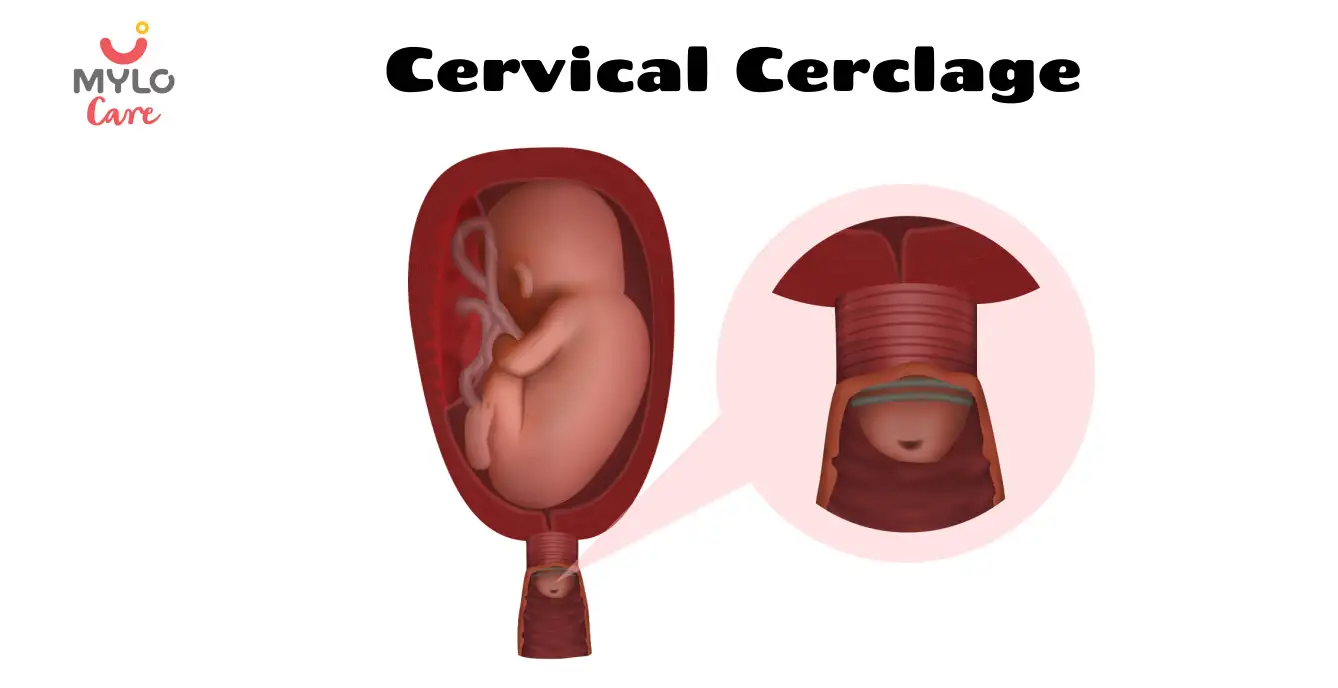Home

IUI Babies vs Normal Babies: Are They Any Different?
In this Article

IUI Babies vs Normal Babies: Are They Any Different?
Updated on 10 April 2024
With the advancement in science and technology, every woman can enjoy the beautiful journey of pregnancy even if she can’t conceive naturally. One of the magical treatments given by science is the IUI fertility treatment. This is generally opted by couples who face issues in naturally conceiving a baby. When so much is being talked about IUI babies, couples often get curious to know details about IUI babies vs normal babies. In this article, we will understand the details of the same.
What is IUI?
First, let us understand what really IUI is. IUI (Intrauterine Insemination) is a popular fertility treatment that involves the introduction of prepared sperm into the uterus during the woman’s fertile period. This procedure is conducted with the aim that the sperm will reach and fertilize the egg and conception will happen.
Here, when we say prepared sperm, this means that the sperm is washed and injected into the body in its concentrated form. Before treatment, both partners must undergo evaluations conducted by specialists. They might have to make certain lifestyle changes to optimize fertility.
5 Common Misconceptions About an IUI Baby
IUI is a wonderful treatment that helps couples conceive and enjoy parenthood. But just like everything else, every good thing has misconceptions associated with it. Here are some common misconceptions about IUI babies-
1. Health-related issues
There is a common misconception that babies conceived through IUI are not as healthy as babies conceived naturally. But the reality is that as per research there is no evidence that an IUI baby is different from a normal baby. Studies were conducted keeping in mind factors like birth weight, overall health, and gestational age of the baby and it was concluded that IUI babies are as healthy as the ones who are naturally conceived.
You may also like: Who Can Get IUI (Intra Uterine Insemination) Procedure?
2. Emotional connection
There is another misconception that IUI babies are not emotionally connected with their parents. But this is far from the truth. Parental bonding doesn’t depend upon the method of conception. It is more related to the nurturing environment and the quality time that the parents spend with their kids.
3. Social taboo
Some parents are so phobic that IUI babies face societal discrimination. This is again not true. With the changing times, society has started seeing IUI babies or IVF babies are normal ones, and they are more receptive to these new methods of conception.
4. Intellectual development
There is a common notion that IUI babies have a lower intelligence quotient. But the reality says that cognitive development and academically also both types of kids are the same.
5. Long-term health
Some parents fear that a baby born out of IUI treatment is prone to long-term health problems. But this is again subjective to the environment that the baby is born into and has no connection with how the baby was conceived.
There are a lot of misconceptions about a lot of things in this world. You shouldn’t follow everything blindly. You should check all the facts and rationale behind the notions and have faith in science and technology.
You may also like: Difference Between IUI and IVF: Which is Better for You?
IUI Babies vs Normal Babies: Key Differences
Under this segment, we will understand the difference between IUI babies and normal babies based on the following parameters:
1. Physical differences
Babies conceived through IUI treatment and those who are conceived naturally show no visible, physical difference. Both these babies undergo similar stages of prenatal development in their mother’s womb. If there is any physical difference, that is solely because of the genes of the parents and has nothing to do with the method of conception.
2. Health and development
When health and development are concerned, both these types of babies showcase similar routes. These two babies don’t differ as far as their birth weight, gestational age, or any other health-related factors are concerned. Both these babies achieve developmental milestones with time. If there is any variation that is again due to basic factors like maternal health, genetics, prenatal care, etc.
3. Emotional bonding
The emotional connection between parents and their child is not at all related to how the baby was conceived. It is only dependent on the nurturing environment that the child gets at home and how much quality time parents are willing to spend with their child. Babies conceived through IUI treatment are equally emotionally attached to their parents as the ones who are conceived normally.
Other factors like skin-to-skin contact, proper caregiving, and positive interactions can help build a better bond with the child.
You may also like: Things to Avoid After IUI: How to Maximize Your Chances of Pregnancy
The Bottomline
It can be concluded that IUI (intrauterine insemination) acts like a blessing for couples who are unable to conceive naturally. This is a low-risk and comparatively less expensive treatment that has led to many successful pregnancies. After a lot of debate on the topic ‘IUI babies vs normal babies’, it has been concluded that after the phases of implantation after the IUI procedure, the pregnancy behaves in the same way. This means that babies conceived through IUI are as healthy as the ones who are conceived naturally.
References
1. Lu YH, Wang N, Jin F. (2013). Long-term follow-up of children conceived through assisted reproductive technology. J Zhejiang Univ Sci B.
2. Allahbadia GN. (2017). Intrauterine Insemination: Fundamentals Revisited. J Obstet Gynaecol India.



Written by
Shivangi Aggarwal
Get baby's diet chart, and growth tips

Related Articles

All that you need to know about IUI (Intrauterine Insemination) Treatment for Pregnancy

IUI Sperm Count: How Much Sperm is Needed for IUI?

What Are the Chances of Getting Pregnant with Intrauterine Insemination?

What are The Most Common Early Signs of Pregnancy Through Intrauterine Insemination (IUI)?
Related Questions
Hello frnds..still no pain...doctor said head fix nhi hua hai..bt vagina me pain hai aur back pain bhi... anyone having same issues??

Kon kon c chije aisi hai jo pregnancy mei gas acidity jalan karti hain... Koi btayega plz bcz mujhe aksar khane ke baad hi samagh aata hai ki is chij se gas acidity jalan ho gyi hai. Please share your knowledge

I am 13 week pregnancy. Anyone having Storione-xt tablet. It better to have morning or night ???

Hlo to be moms....i hv a query...in my 9.5 wk i feel body joint pain like in ankle, knee, wrist, shoulder, toes....pain intensity is high...i cnt sleep....what should i do pls help....cn i cosult my doc.

Influenza and boostrix injection kisiko laga hai kya 8 month pregnancy me and q lagta hai ye plz reply me

RECENTLY PUBLISHED ARTICLES
our most recent articles

Food Cravings
Is it Safe to Eat Pani Puri During Pregnancy?

Scans & Tests
High WBC in Pregnancy (Leukocytes): Symptoms, Causes & Treatment

Diet & Nutrition
Top 10 food items and beverages that one must completely avoid during pregnancy.

Negative Commerce Content
Things Not to Do After Cervical Cerclage for a Healthy Pregnancy

Pregnancy Precautions
When to Stop Bending During Pregnancy?

Symptoms & Illnesses
Pain in Anus During Pregnancy: Your Guide to Causes and Cures
- White Spots on Nipple: Normal or Cause for Concern?
- Blessed with Baby Boy: 50+ Ways to Announce Your Baby's Birth
- Brown Discharge During Early Pregnancy: Understanding the Causes & Next Steps
- When Can I Start Bending After C-Section: Expert Insights on C-Section Recovery
- 18 Foods That Can Cause Miscarriage: A Guide to Avoiding Harmful Foods
- 9 Week Ultrasound: What to Expect & What are the Red Signals?
- Drumstick During Pregnancy: The Ultimate Guide to Benefits & Side Effects
- How to Avoid Pregnancy After Missing Period Naturally?
- 1st Birthday Wishes for Nephew and Niece That Tug at the Heart
- The Ultimate Collection of Baby Boy Names in Telugu
- Navel Displacement: The Ultimate Guide to Causes, Symptoms & Treatment
- Top 10 Thriller Movies on Hotstar for Edge-of-Your-Seat Excitement
- 10 Best Pakistani Dramas of All Time
- Ear Infection During Pregnancy: Understanding the Risks and Remedies


AWARDS AND RECOGNITION

Mylo wins Forbes D2C Disruptor award

Mylo wins The Economic Times Promising Brands 2022
AS SEEN IN

- Mylo Care: Effective and science-backed personal care and wellness solutions for a joyful you.
- Mylo Baby: Science-backed, gentle and effective personal care & hygiene range for your little one.
- Mylo Community: Trusted and empathetic community of 10mn+ parents and experts.
Product Categories
baby carrier | baby soap | baby wipes | stretch marks cream | baby cream | baby shampoo | baby massage oil | baby hair oil | stretch marks oil | baby body wash | baby powder | baby lotion | diaper rash cream | newborn diapers | teether | baby kajal | baby diapers | cloth diapers |




